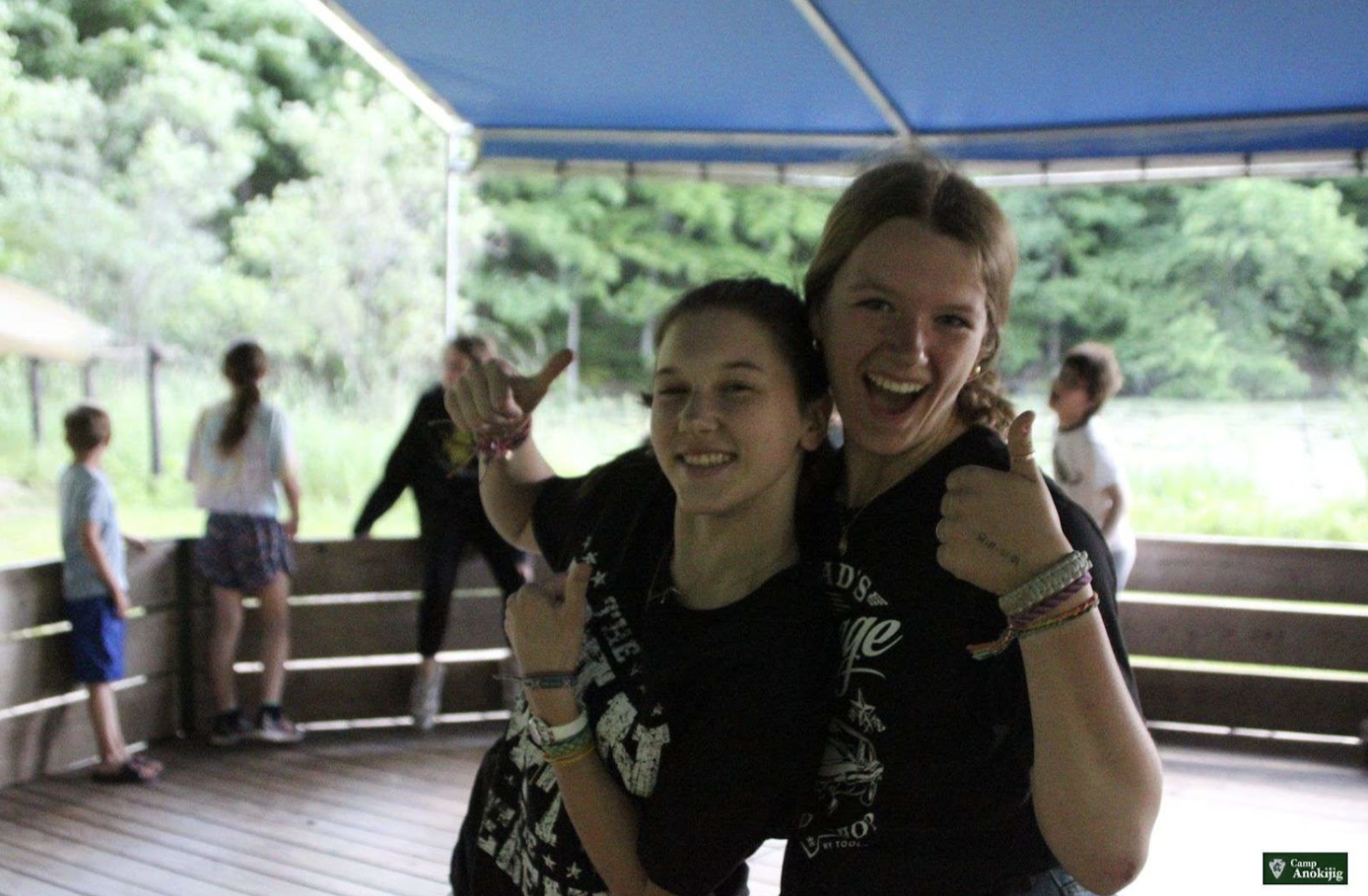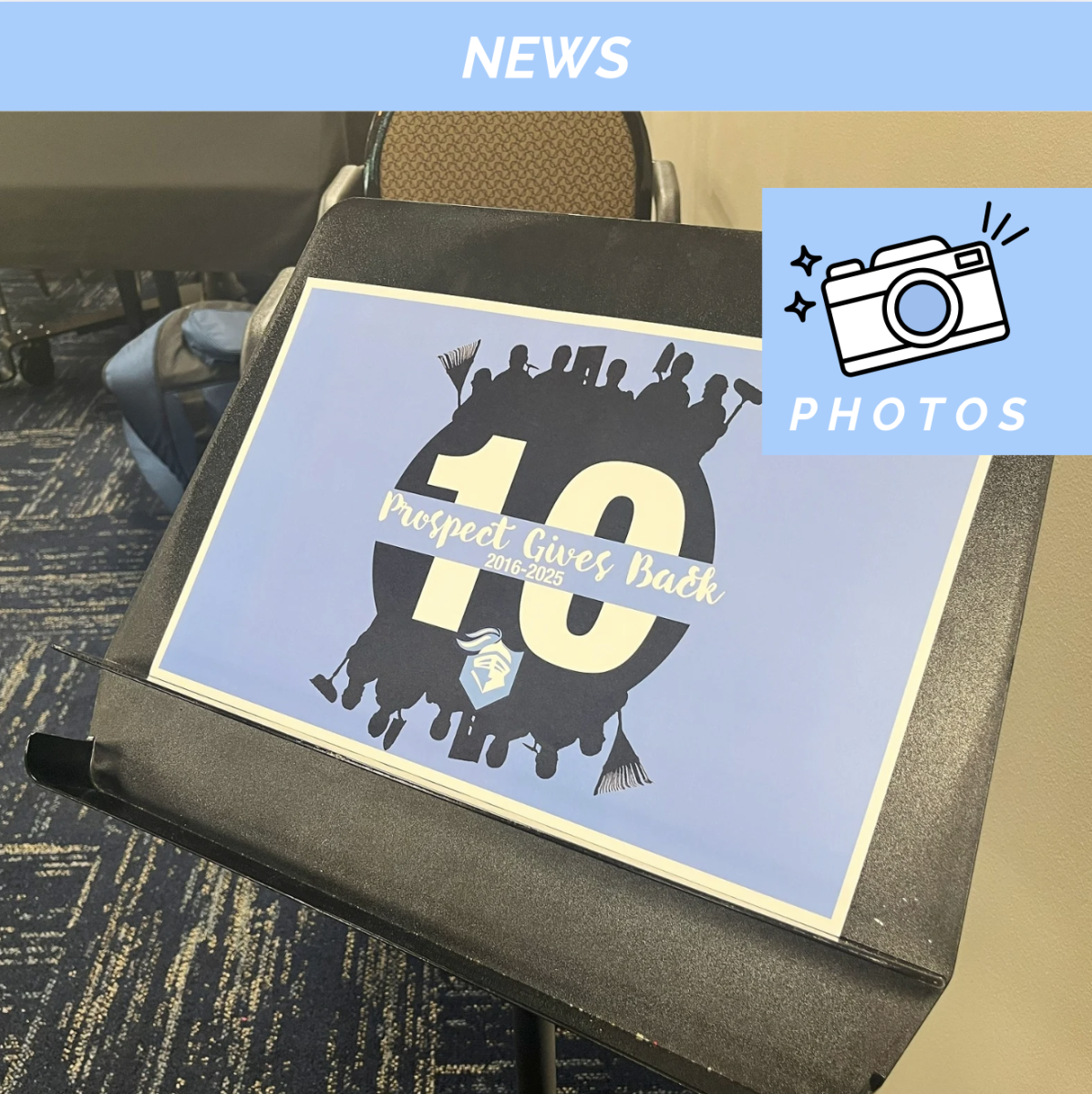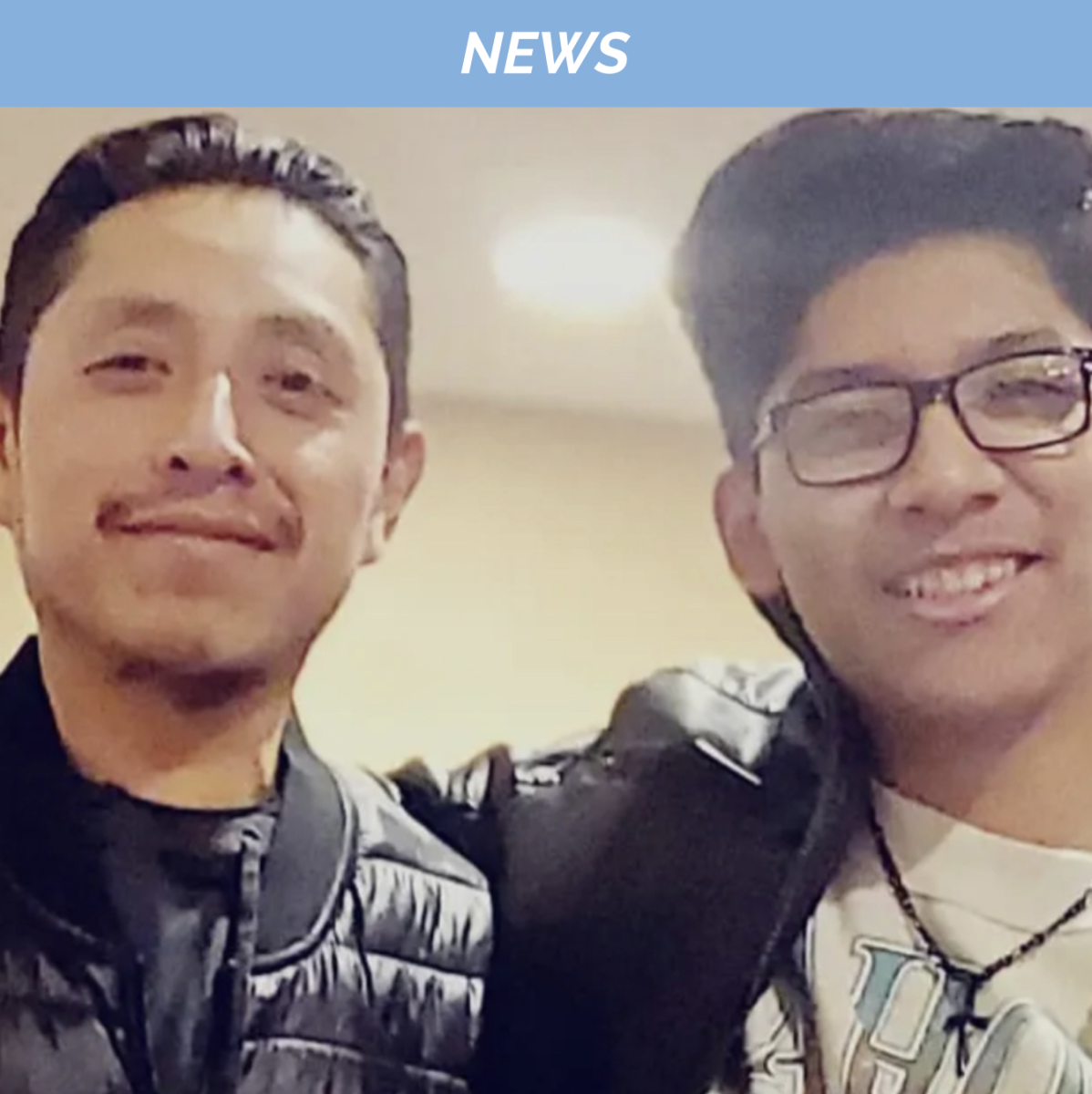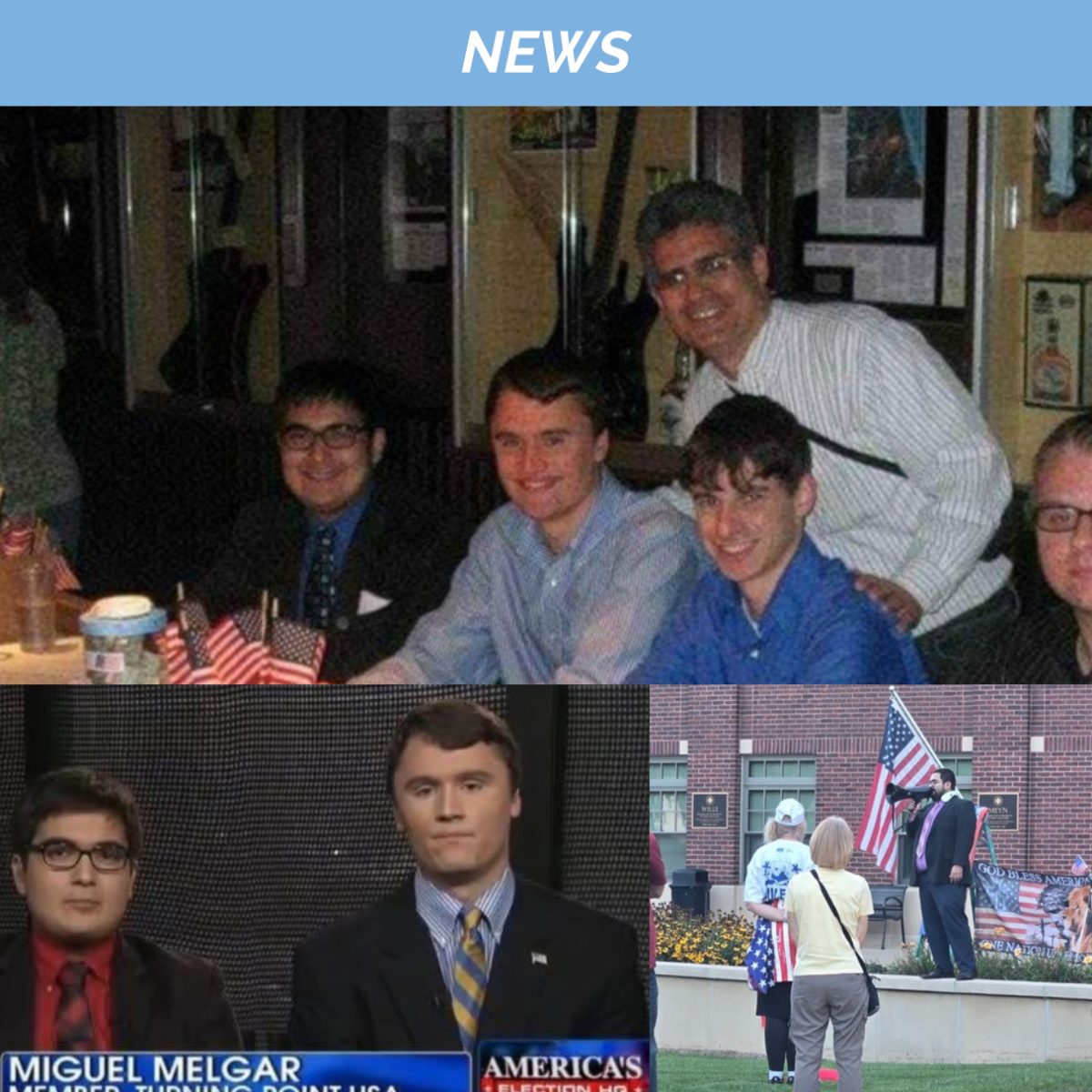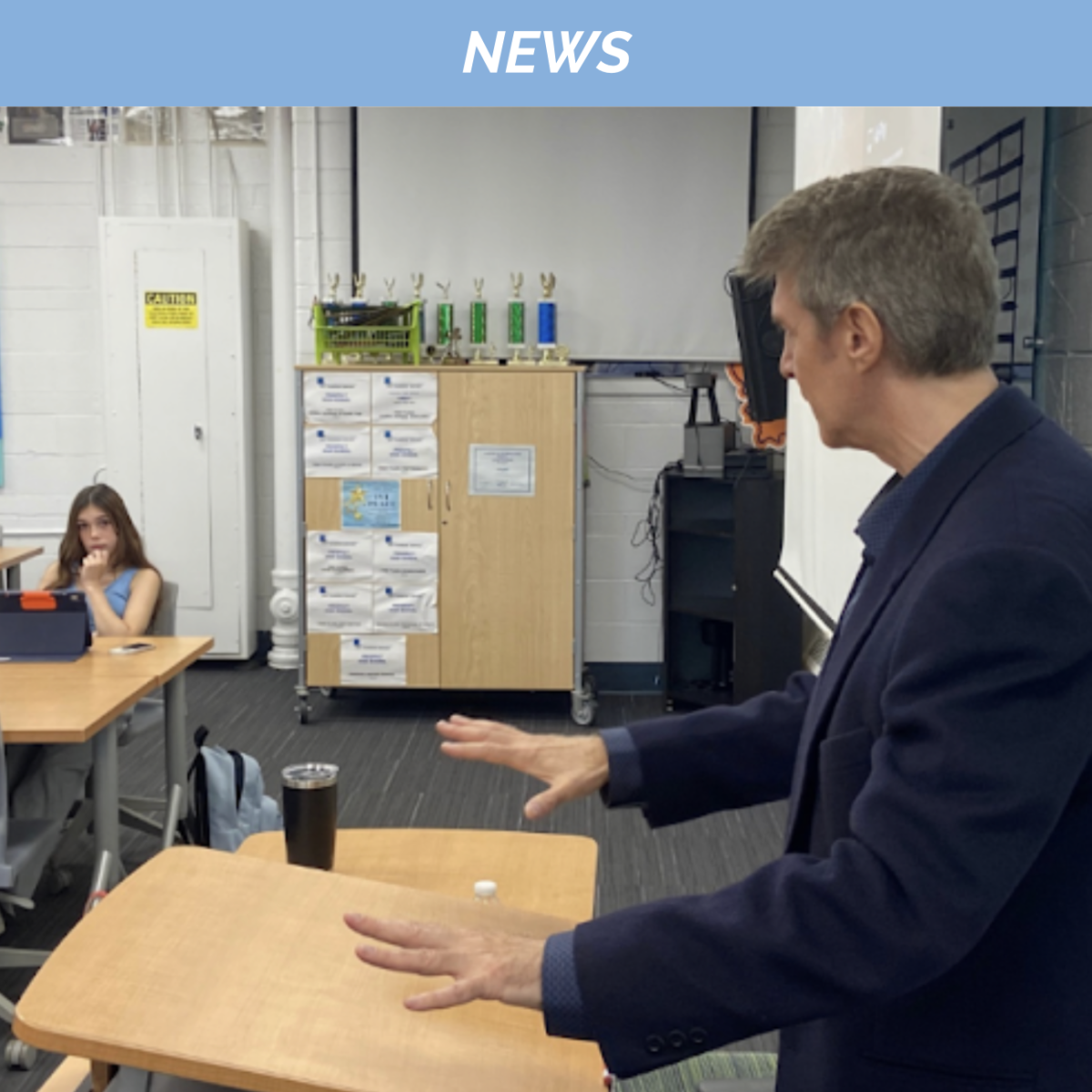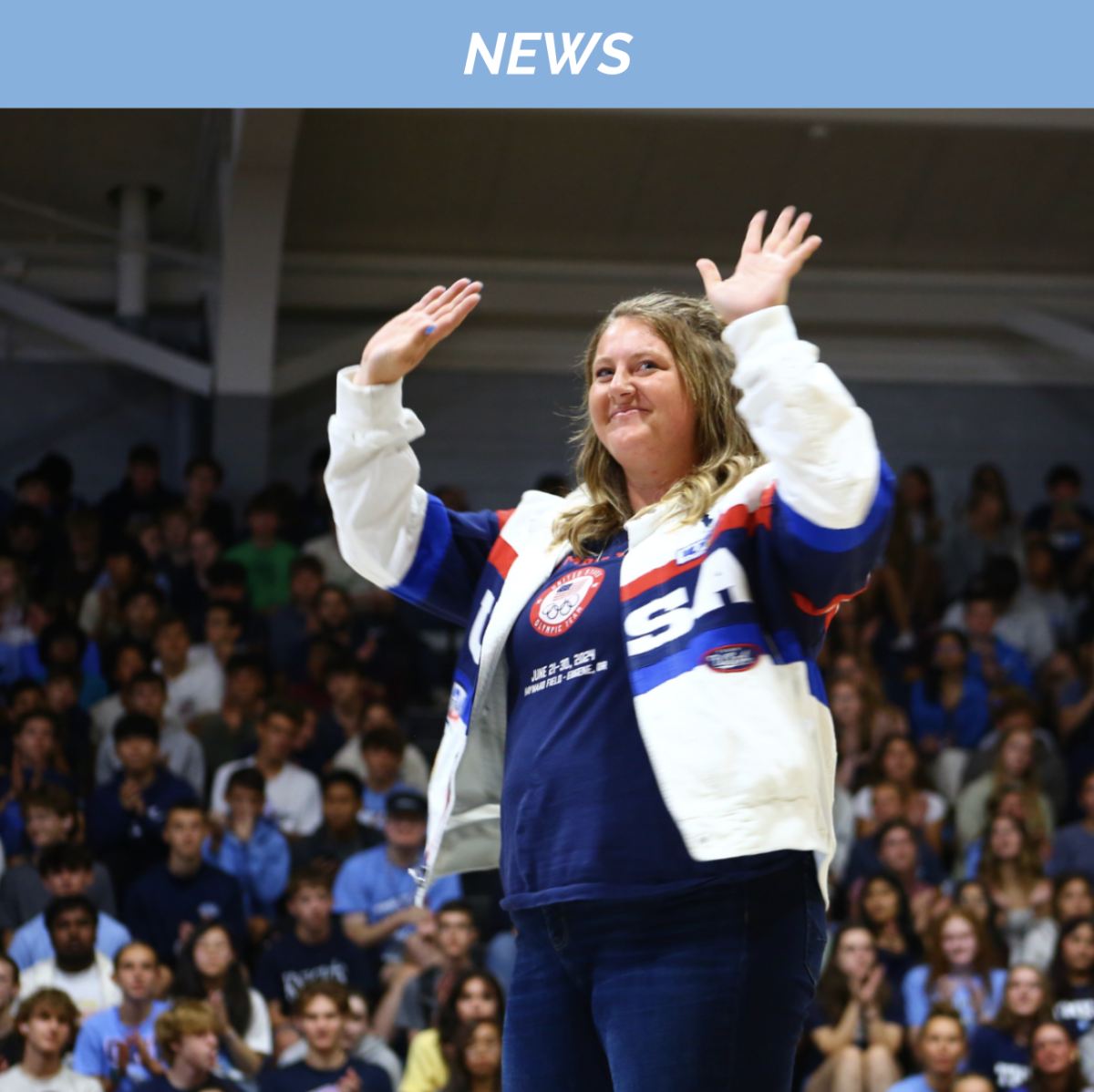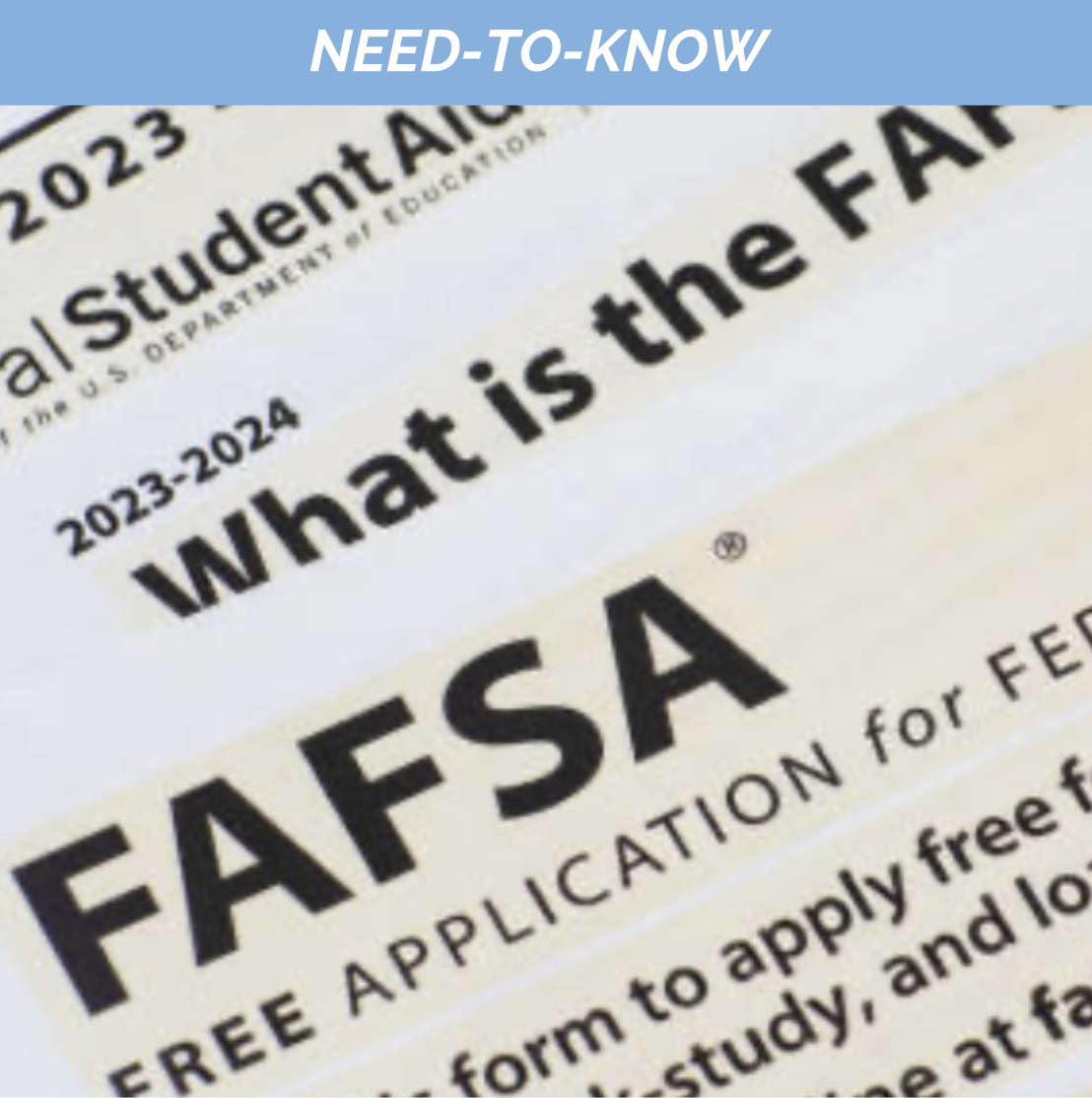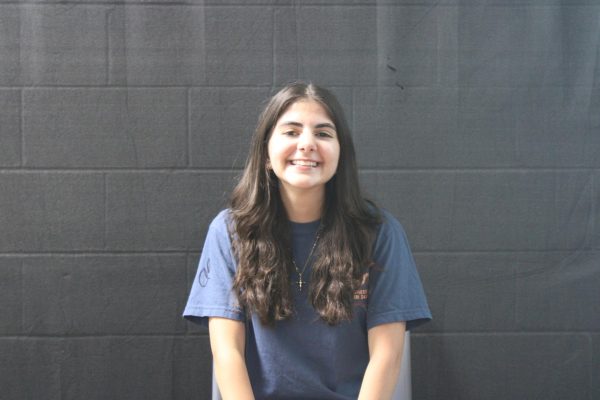On July 3, while volunteering at Camp Anokijig (Anne-oh-key-g), in Plymouth, Wisconsin, Junior Paige Hall saw one of her campers crying.
Alarmed, Hall and the other leaders tried to calm the 11 year old camper down to figure out what was wrong. The camper was extremely upset and cried for a while.
Once she was calm, Hall and her peers discovered that this camper was feeling homesick because she was not going to spend the Fourth of July with her family.
Additionally, the camper was disappointed because she did not get to see the firework show Camp Anokijig puts on, which she was looking forward to.
The camper told Hall how she was scared of the loud noise that the fireworks made, and how she was told by another staff member to sit in a building to watch them. However, the camper could not see the fireworks from there.
Once Hall and her fellow leaders heard this, they knew they had to make things right.
The next day, on the Fourth of July, Hall and the other leaders took their group of campers to Victory Hill. From there, the 11 year old camper got to see all the fireworks in the town from the horizon.
“[I] really like creating a safe space and a home for all of the kids that like to go there no matter what their life is like at home,” Hall said.
According to Newsweek, a weekly magazine based in New York, there are over 12,000 summer camps in the US. These summer camps provide many opportunities for students to attend and work at camps around the nation. 16.9% of Prospect students said they have worked or volunteered at a summer camp before (according to a KnightMedia survey of 254 responses).
Due to the energetic environment, volunteering or working at camp comes with some challenges but also many rewards.
When she was younger, Hall and her dad were a part of a dad and daughter camping group, organized by the Big Waters Federation, where they would go to different camps on the weekends. That is how Hall found Camp Anokijig. She started going to summer camp there at seven years old and was a camper for eight years.
Hence why, going into her sophomore year, Hall decided she wanted to be a volunteer there. This upcoming summer is going to be her third year volunteering at the camp.
Hall is a member of the Junior staff, which is a volunteering job, while Senior staff, for individuals 18 or older, is a paid job. As a member of Junior staff, Hall lives with campers in cabins and tents throughout the week and runs activities on the waterfront like boating and swimming. In return, Hall gets 80 service hours a week with free food and housing.
Camp Anokijig has nine one week sessions in the summer, so most campers stay for one week but they have the option to stay for multiple.
There are several different types of summer camps, Camp Anokijig is a sleep away camp, another common type are religious camps. An example of this is Vacation Bible School (VBS), held at St. Raymond De Peñafort Catholic Church in Mount Prospect, which works with kids from preschool to fifth grade.
Sharon Moeykens, who runs the religious education program at St. Raymond, organizes the event. This year the camp will happen July 8 to 12 from 9 a.m. to 12 p.m.
There are around 150 to 200 campers every year and roughly 100 volunteers are needed to run the camp. That includes around 30 adults and 70 middle school or high school volunteers.
Even though the event takes lots of planning, Moeykens recognizes how rewarding it can be for the teen volunteers in particular.
“I love to see the excitement on the kids’ faces when they walk in … their eyes get so wide and they just love being with all of the teen volunteers, they look up to [the volunteers] so much,” Moeykens said.
According to Moeykens, “any gift” a volunteer has can be used at VBS as a variety of activities need to be run at the camp such as crafts, athletic games, decorating for the event and story time with the kids.
Northwest Covenant Church, only a few blocks from Prospect, is another church community that hosts a similar week-long camp for kids in the area. Their camp is called Adventure Camp, and upon registration, it allows campers to choose what “adventure areas” they want to explore for the week. This includes arts and crafts, sports and wilderness where campers learn more about nature and camping skills.
This camp also provides an opportunity for middle school and high school students to volunteer and connect with the kids they encounter during the camp. Drew Edstrom, Prospect alumnus and former director of youth ministries at the church mentions that this is one of his favorite parts about the camp.
“[Watching] a lot of our high school kids come alongside [the campers] and love [the campers], that’s one of the coolest things. I love watching our highschoolers step into leadership roles,” Edstrom said.
Through this type of leadership, those who are volunteering are able to pave the way for positive impacts to be made on young campers. Similar to Hall’s experience with the camper on the Fourth of July, Edstrom likes to create a ‘safe space’ for campers to explore and be themselves.
“[I loved] giving kids an opportunity to be kids, watching kids experience new things, watching kids be empowered and be goofy and crazy and just be who they are,” Edstrom said.
Despite its rewards, volunteering at camp with kids doesn’t come without its difficulties. Hall, Moeykens and Edstrom all agree that volunteering or working at camp requires lots of energy and that there isn’t always time to rest.
On some days, Hall only gets three hours of sleep while at her camp due to the fact that she needs to help campers who are feeling homesick or can’t sleep. According to Hall, volunteering at camp is a 24 hour job.
“I am deathly ill every single time I work there because [volunteers] are up for so many hours of the day … I always get so sick that it’s hard to do my job,” Hall said.
Before working at Northwest Covenant, Edstrom worked at Covenant Point Bible Camp, a Christian camp in the upper peninsula of Michigan. Edstrom worked at the camp for six summers, then as an intern from May 2016 to August 2017.
Through this Edstrom, like Hall, learned the importance of taking care of yourself to show up well for others. For Edstrom, rest often came in the form of activities like being outside.
“I learned rest is not only just an activity that we can do when we are sleeping, but also there are other things that we can do that give us life too,” Edstrom said.
Another aspect that can pose challenges at times, is learning how to work with different people.
Hall especially felt this struggle when it came to helping campers. At Camp Anokijig, campers range from ages 7 to 16. Due to this, Hall can work with kids 10 years younger than her or only one year younger than her.
This large difference in age results in “a big range of personalities” according to Hall, which can be difficult to handle. Part of her role is to help campers through mental health issues and address potential bullying that could occur. To her, this can be one of the most challenging parts of the job.
Edstrom felt a similar way, except when it came to working with the same staff in an isolated camp.
“When you’re working with other people they have past life experiences or things that they carry into the job, they’re human beings,” Edstrom said. “So learning how to work alongside others that maybe feel differently than you or have opinions or are struggling … you never really know how the groups are going to mix or how staff relationships are going to be.”
Hall expanded on this idea, recognizing that being pulled out of a place she was familiar with opened her up to new people and perspectives.
“I think that at Prospect we’re kind of in a little bubble and everybody believes the same things … we’re all interested in working with each other and being with each other … but at camp you’re coming from so many different places,” Hall said.
Hall has worked with individuals from Spain, Venezuela and Mexico who come to either be on staff or attend as campers and see what the US is like. Through working with different people, Hall has realized the importance of finding common ground.
“It doesn’t really matter where people come from or what their interests are. You can make connections with anyone and you know you shouldn’t judge people based on their outward looks or based on what their activities are. I think that we all have something in common,” Hall said.
Although it can be a learning curve, meeting new people at camp has paved the way for new, long lasting friendships and strong communities to be built.
“Some of the people that I’m closest with have come from the connections I’ve made working with them [at camp],” Hall said.
While working as a program director one summer at Covenant Point, Edstrom’s best friend had passed away. Looking back, Edstrom realized that his support system came from the relationships he had formed at camp.
“Serving in the midst of grief and what that looked like was very challenging for me, but it taught me that we’re never alone, that we have [a] community of people that we can ask for help,” Edstrom said. “The lowest moment of my life I had people in my corner that were encouraging me, and it also taught me that leadership requires vulnerability.”
Hall, like Edstrom, has also found a strong community at camp to help her through anything.
“It created a place for me where I know everyone is always there for you … it’s my happy place, it’s like my home … it’s just perfect,” Hall said.
Despite the lack of sleep and the occasional difficulty of working with new people, Hall ultimately views volunteering at summer camp as a worthwhile experience.
“I would 110 percent recommend working at camp because it’ll teach you so many things about yourself and about working with others. It’s given me some of my best memories, my best friends and I just think that it’s such a rewarding experience and everybody should do it,” Hall said.
Here is the link to St. Raymond’s VBS volunteer form if you are interested!: https://www.st-raymond.org/2024-vbs-volunteers/

